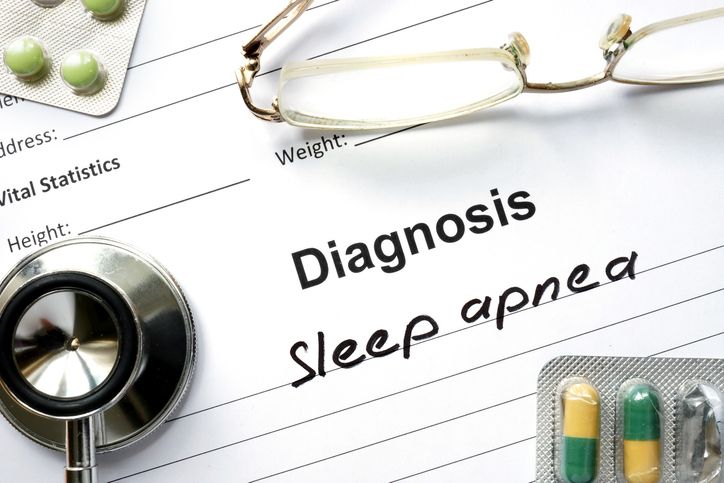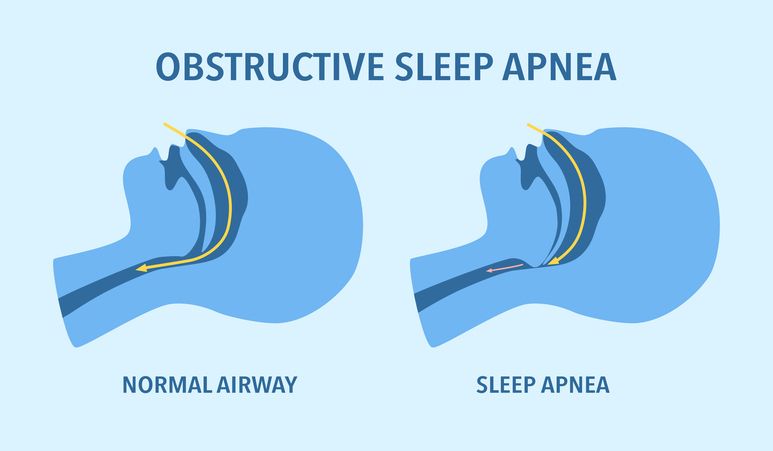- Home
- Trend
- Weight Loss Strategies
- Acne Tips
- Hair Health Information
- Blemish Removal Tips
- Acne Scar Removal Tips
- Muscle Building Techniques
- Intimate Care Tips
- Postpartum Intimate Care
- Eye Bags Wiki
- Tips for Face Slimming
- Secret of Permanent Hair Removal
- Breast Enlargement Tips
- Cure to Snoring
- Marionette Lines
- Skin-Tightening Secrets

免費體驗
Fotona 4D NightLase Snoring Treatment
1 Minute Self-Registration
Date should not be before minimal date
Sleep apnea, a serious sleep disorder that afflicts millions globally, manifests when a person's breathing is interrupted during sleep. Among its types, Obstructive Sleep Apnea (OSA) is the most prevalent. While many might dismiss it as mere snoring or a minor inconvenience, emerging research suggests that the implications of untreated sleep apnea can be far more severe, potentially escalating to life-threatening conditions. So, today let's delve into the gravity of snoring and sleep apnea, their consequences, and the importance of timely treatment.
1
How Can Snoring Loudly Become Fatal?

Symptoms that show you might having sleep apnea
2
How People With Sleep Apnea May Encounter Life-Endangering Moments?

9 Risks Associated with Sleep Apnea
- Snoring Solutions: Can Snoring Really Be Solved In Just 15 Minutes? The Truth About Mouth Breathing
- 3 Hidden Side Effects Of Snoring Devices: What Beauty Clinics Don’t Tell You! A Must-Read Before You Decide
- Unlocking the Risks: Is Mouth Snoring a Serious Health Concern?
- Why Is It So Hard To Sleep Well? 6 Obstacles To Your Good Night's Sleep
3
Treat Sleep Apnea Even Before It Happens: Supportive Exercises

1. Oropharyngeal Muscle Exercises
2. Nasal Breathing Exercises
3. Aerobic Exercise
4
Even Better Prevention: Treat Your Snoring Problem Early with Perfect Medical

Having excessive daytime sleepiness after snoring at night? Time to visit us!

免費體驗
Fotona 4D NightLase Snoring Treatment
1 Minute Self-Registration
Date should not be before minimal date
FAQ

1. What is continuous positive airway pressure (CPAP) and how does it help in treating obstructive sleep apnea?
Continuous positive airway pressure (CPAP) is a treatment that uses a machine to deliver air pressure through a mask while you sleep. This pressure keeps the airway open, preventing the pauses in breathing characteristic of obstructive sleep apnea. By ensuring a steady airflow, CPAP helps in reducing loud snoring and the risk factors associated with untreated sleep apnea, such as increased risk of cardiovascular problems.
2. What are some common risk factors for developing obstructive sleep apnea, and how can losing weight help?
Common risk factors for obstructive sleep apnea include obesity, a narrow airway, high blood pressure, and a history of sleep apnea in the family. Losing weight can significantly reduce the severity of sleep apnea for some individuals because it decreases the amount of tissue that can block the airway during sleep, thereby lowering the increased risk of developing sleep apnea-related health issues.
3. Why is it important to undergo a sleep study if you experience loud snoring and difficulty falling asleep?
A sleep study is crucial for diagnosing various types of sleep apnea and other sleep disorders. If you experience loud snoring and have trouble falling asleep, these could be signs of obstructive sleep apnea or another sleep-related issue. Sleep medicine specialists use sleep studies to observe your sleep patterns, breathing, and brain activity to accurately diagnose and recommend effective treatments.
4. Can sleep apnea be dangerous if left untreated, and what are the implications of the brain failing to signal for breathing?
Sleep apnea can be extremely dangerous if left untreated, leading to an increased risk of heart disease, stroke, and high blood pressure. In central sleep apnea, the brain fails to send the proper signals to the muscles that control breathing, leading to periods of no breathing. This type of sleep apnea highlights the importance of treating sleep apnea to maintain overall health and prevent life-threatening conditions.
5. Besides CPAP, what are other methods of treating sleep apnea, and how effective are they in stopping loud snoring?
Treating sleep apnea can involve lifestyle changes such as losing weight, using dental appliances, undergoing surgery, or trying positional therapy, depending on the severity and type of sleep apnea. These treatments aim to open the airway and reduce or eliminate symptoms like loud snoring. While CPAP is highly effective, other treatments can also significantly improve sleep quality and reduce the risk factors associated with sleep apnea, though their effectiveness varies from person to person.








